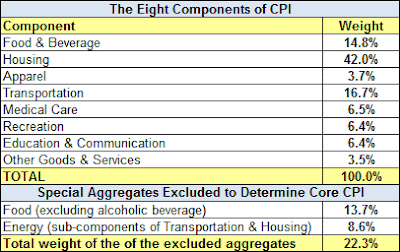Stefan Karlsson writes:
It is generally assumed, and rightly so, that the new round of "quantitative easing" will generate higher inflation in the United States. But it is rarely explained just why it will do so. After all, QE2 will not be conducted by dropping dollar bills from helicopters.
Well, there are essentially three mechanisms by which it happens: higher money supply, lower money demand and lower supply of goods and services.
1) Regarding money supply, it should be noted that by lowering interest rates, QE2 will boost demand for loans. Higher demand for loans will in a fractional reserve banking system generate a higher money supply. Given a certain level of money demand and supply of goods and services, a higher money supply will result in higher price inflation.
2) Regarding money demand, higher inflationary expectations will cause people to be less willing to hold money (as its real value is expected to drop), thus reducing money demand. And lower money demand has a very similar effect on prices as a higher money supply.
It should be noted though in this context that to the extent that QE2 lowers nominal interest rates, this will increase money demand as the opportunity cost of holding money drops.
So the net effect of Fed bond purchases on money demand depends on to what extent it raised inflationary expectations more than it lowers nominal interest rates.
And it seems that the increase in inflationary expectations is this time somewhat bigger than the drop in nominal yields.
As of this writing, the nominal 5-year yield has dropped 21 basis points since
August 31 (from 1.33% to 1.12%) while the inflation indexed 5-year yield has dropped 72 basis (from 0.14% to -0.58%) points since
August 31, implying that inflationary expectations has increased 51 basis points (from 1.19% to 1.70%) during that period.
Thus, QE2 has likely reduced money demand somewhat.
3) Regarding the issue of reduced supply of goods and services, it should be noted that to the extent that QE2 reduces the value of the dollar and to the extent that companies adjust prices, it will raise import and export prices, causing a reduction in the inflow of foreign goods and services and increase in the outflow, reducing the supply of goods and services available to Americans.
A lower supply of goods and services will given certain levels of money supply and demand increase the dollar price of goods and services.
In conclusion we can clearly see that by a combination of a higher money supply, a reduction in money demand and a reduced domestic supply of goods and services, QE2 will clearly increase price inflation. The only uncertainty is just how big this effect will be.
source








 source
source 





